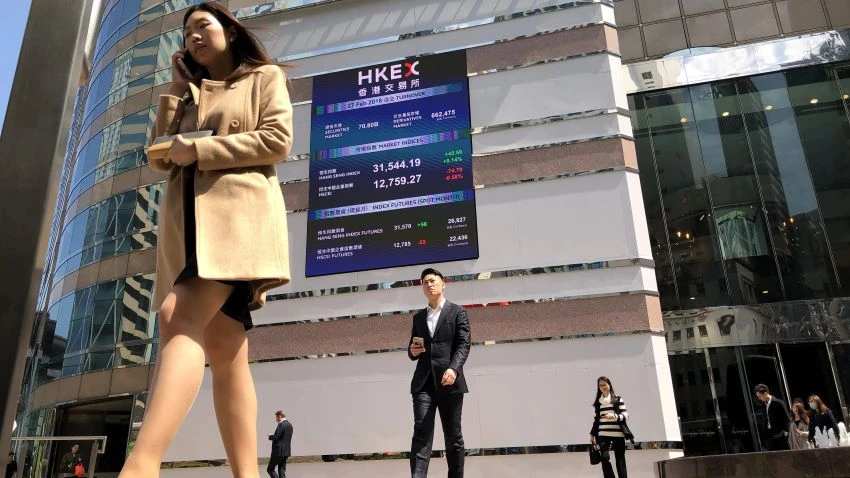
ByteDance, the Chinese company behind wildly popular TikTok short-video platform and a venture capital darling, is facing mounting questions over its future as it weighs a jump into public markets.
Seen not long ago as another potential breakout success from China's tech scene, ByteDance now finds itself contending with growing political pressure from Washington over security concerns as well as less-than-hospitable market sentiment.
A report last month that ByteDance, the world's most valuable unicorn with an estimated worth of $75 billion, could go public in Hong Kong next spring met with a cool response from Chinese market players.
Market watchers are skeptical of the company's often-cited $75 billion valuation. "I really doubt it would achieve that valuation in a public offering," an analyst at China's Guodu Securities said.
Right now, TikTok has no clear way to make money besides advertising revenue, a market watcher said. If it cannot come up with a new growth strategy, it will have a tough time, this source added.
ByteDance said in July 2018 that TikTok and Chinese counterpart Douyin boasted 500 million monthly active users. But TikTok downloads fell 4% on the year to 177 million in the three months through September, according to U.S. research firm Sensor Tower. While it remained the second-most-downloaded app worldwide, behind WhatsApp, this marked the first such decline since the platform launched in 2017.
TikTok "is growing, but they're spending a huge amount of money promoting it," Facebook CEO Mark Zuckerberg said in an internal meeting, according to leaked audio reported by American media last month. "What we've found is that their retention is actually not that strong after they stop advertising."
The struggle of other startups has become a cautionary tale for investors once excited about richly valued unicorns. Ride-hailing behemoth Uber Technologies, which has yet to turn a profit on its core operations, has seen its shares drop by a quarter since its initial public offering in May. Shared-office provider WeWork withdrew its IPO plans in September -- forcing a bailout by top investor SoftBank Group -- after the widespread negative response to its filing made clear that its public valuation would fall far short of its lofty heights on the private market.
ByteDance has also been caught up in the mounting trade and political tensions between Washington and Beijing.
U.S. Sen. Marco Rubio sent a letter last month to Treasury Secretary Steven Mnuchin urging a national security review of the company's 2017 purchase of American social media app provider Musical.ly.
The Chinese government is using apps like TikTok to "globally suppress freedom of speech, expression, and other freedoms that we as Americans so deeply cherish," Rubio wrote.
The Committee on Foreign Investment in the United States, which examines such deals for potential national security threats, has reportedly opened an investigation into the Musical.ly acquisition, which was not reviewed at the time it took place.
Musical.ly was a San Francisco-based startup whose lip-syncing app of the same name took off in the U.S. and Europe. Its growth caught the eye of ByteDance, which essentially copied the service to create Douyin, which launched in China in 2016.
Not content with this, ByteDance moved to buy Musical.ly outright the next year. The deal let the Chinese company absorb Musical.ly's tens of millions of Western users.
It also received their data, which is among Washington's concerns about the acquisition. A cybersecurity law implemented by China in 2017 requires network operators to give authorities full access to their data if necessary for national security. The U.S. worries that Beijing could use this provision to gather personal information on Americans.
If the CFIUS review of the Musical.ly deal goes against ByteDance, its valuation is certain to suffer.
"TikTok has made clear that we have no higher priority than earning the trust of users and regulators in the U.S.," a TikTok spokesperson told Reuters. "Part of that effort includes working with Congress and we are committed to doing so."




















